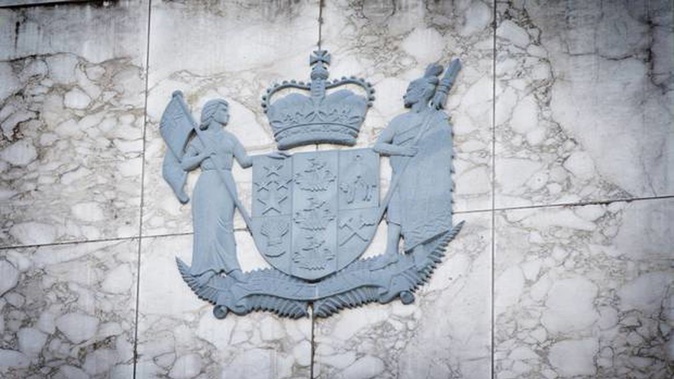
It's been more than four months since a North Otago mother who sought attention by poisoning her toddler at Dunedin and Auckland hospitals – resulting in the child's induced coma and fears of possible brain damage – was ordered to serve a sentence of home detention.
Her son, now 3, remains resilient despite the health setbacks that happened when he was 15 months old. But as the family moves into the new year the nightmare in some ways still lingers, the child's grandmother says.
"Each step we've sort of thought, 'Right, that's it – we can just move on'," she recently told the Weekend Herald, explaining that they've been surprised at each step of the way to learn that isn't necessarily the case. "I don't know what the future holds.
"We just have to try to keep love and normality for the children and keep them safe, really."
The defendant, who has permanent name suppression, as does her young son, appeared at the High Court at Auckland in August for sentencing after pleading guilty to two representative counts of ill-treatment of a child and one representative count of theft of eyedrops from the Starship Children's Hospital pharmacy.
She initially told authorities she didn't know why she gave her son a toxic concoction of the stolen eyedrops and her own antidepressant medication over the course of 10 days in August 2019, as he received treatment first at Dunedin Hospital then was airlifted to Starship in Auckland.
Doctors had already warned the family the child may not survive what was then a mystery illness when her tampering with the child's feeding tube was detected.
The woman later said she did it to bring attention to herself and relieve her of parenting duties. Justice Christine Gordon, who ordered the sentence, agreed with a psychological assessment that the woman suffered factitious disorder imposed on another, or FDIA, a mental disorder previously known as Munchausen syndrome by proxy.
The boy's father, who said he at first stood by his wife but left her when he realised, she was guilty, expressed anger and anguish when he gave a victim impact statement at the sentencing hearing.
"I was betrayed by [her] – even treated like a suspect in the earlier instances," he told the court. "My personal belief is a light sentence will only allow her to manipulate the system . . . and someday cause more harm."
Since then, the family has suffered a series of additional setbacks, the father and his own mother have both said.
"Me and the kids are just moving on," the father told NZME in August, one day after the hearing. "The less we have to do with her the better.
"The best thing for them would be to have nothing to do with her. She's a very crafty sort of person."
But within days of the sentencing, the ex-husband received a message from the woman suggesting the toxic concoction had been administered "just to make him poo" or "something absolutely ridiculous like that", the grandmother said.
"She's making out like nothing has happened," she said. "It would be different if we thought she'd got help and accepted her guilt and showed remorse."
During the sentencing hearing, defence lawyer Julie-Anne Kincade, QC, argued that her client's remorse was genuine, and her pain at not being allowed to see her children due to her own actions was her greatest punishment. Kincade submitted to the court a letter from a family member of the defendant, who said the defendant often sobs for hours when she thinks no one is watching, praying for her children.
"That is what she lives with," Kincade said. "That is what she has to face."
The child's father had another setback in October, when the court ruled that his ex-wife should have permanent name suppression. Prosecutors had not opposed the suppression, noting that the child already has permanent name suppression by statute. But his father felt that naming his ex-wife was important.
Because his son has a different surname, he is unlikely to be identified and he is too young to be aware of such issues anyway, the father told the court, adding that he believed his ex's name suppression bid was intended to protect herself – not her son.
Justice Gordon said she understood the father's point of view that his son was too young for the matter to affect him.
"That may well be the case now, but I am conscious of what the position may be in the future, particularly as [the child] advances into, for instance, his early teenage years," she said in her ruling. "Knowledge among his peers, for example, of what his mother did to him when he was a young child could potentially be deployed against him in a cruel and upsetting way."
While the family was taking in that setback, they still had hope for another facet of the justice system: an appeal against sentence filed in September in which the deputy solicitor-general intended to argue that the mother should have been sent to prison.
But in November, the appeal was dropped.
A Crown Law spokesperson declined to elaborate on why but told NZME new information had come to light pertaining to whether a prison sentence would still be in the "public interest". The family said they were told it was because the woman was pregnant again and authorities didn't want her to have to give birth in prison.
"One week we are being told the appeal date and the next week we were told the deputy solicitor-general had dismissed it on these grounds," the boy's grandmother told the Weekend Herald, adding to her son's assessment that he was "disgusted" and tired by the setbacks.
"We very strongly believe, unfortunately, that the justice system is very much in favour of the perpetrator, she added. "The victims, they get such a hard time. The system has let us down, big time, and the children."
But it's not all bad news for the family. The child and his two siblings are doing great in the care of their father, their grandmother said.
MRI scans taken of the boy's brain around the time of his hospitalisation showed tissue damage to three areas. So far, though, he seems to be thriving.
"He is a loving little boy and he is meeting his milestones," his grandmother said. "And he has lots of little friends and he's loved and happy and safe. He's got an amazing relationship with his dad."
The boy's mother, meanwhile, remains focused on getting treatment for her issues, her lawyer told the Otago Daily Times in November.
At the August sentencing hearing, Justice Gordon received psychiatric reports diagnosing the defendant with major depressive disorder, alcohol abuse disorder, gambling disorder and having traits of borderline and anti-social personality disorders, as well as FDIA.
The psychiatric reports also documented the defendant's own history of childhood separation from a parent, childhood neglect and abuse, disordered attachment relationship with her parents, medically unexplained physical symptoms including fabricated symptoms, mood and personality disorder, self-harm and lying, the judge noted.
"It is abundantly apparent you have a complex psychiatric history," the judge said, adding that she believed the issues would best be able to be addressed outside the confines of prison.
- by Craig Kapitan, NZ Herald
Take your Radio, Podcasts and Music with you









